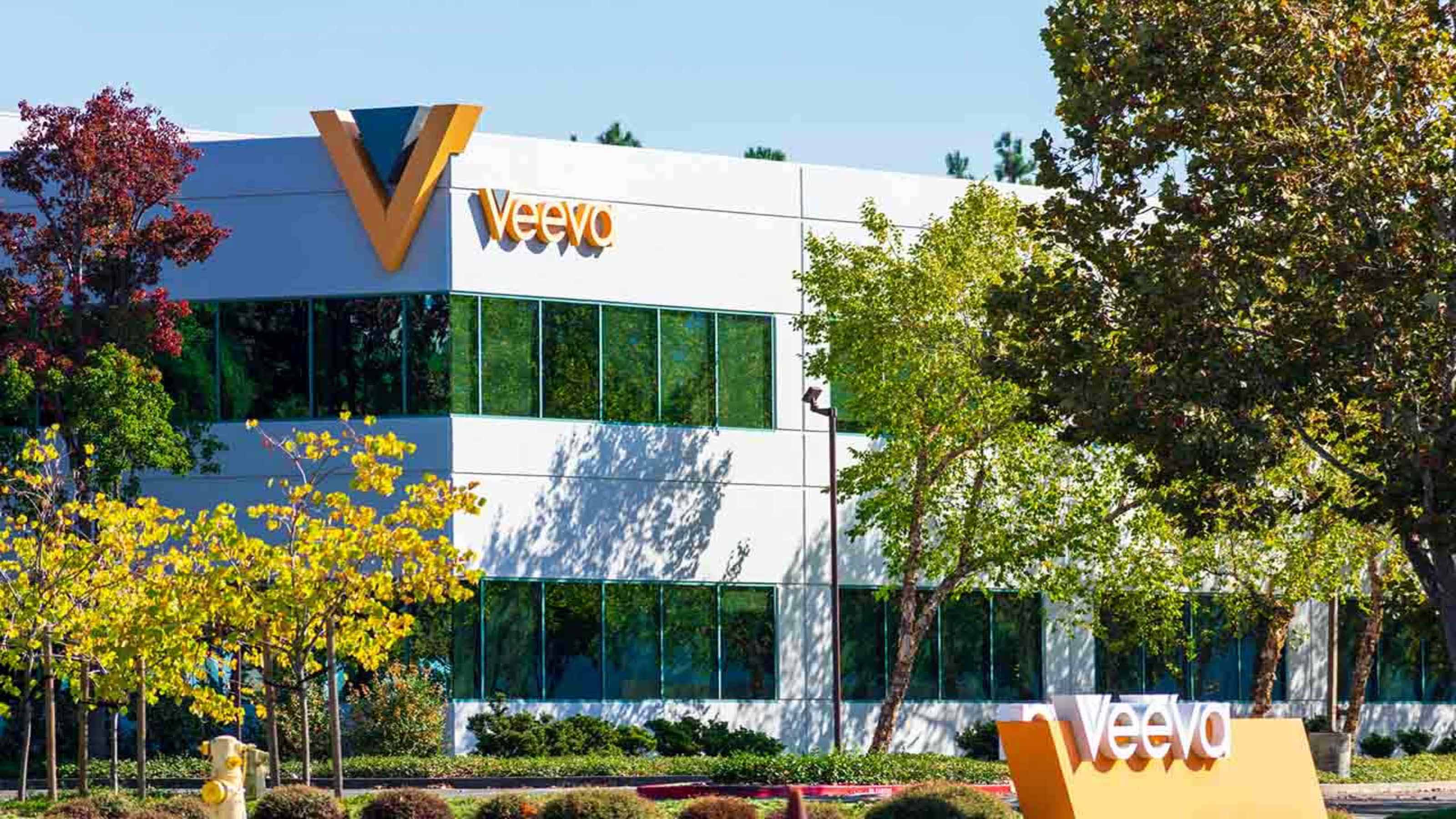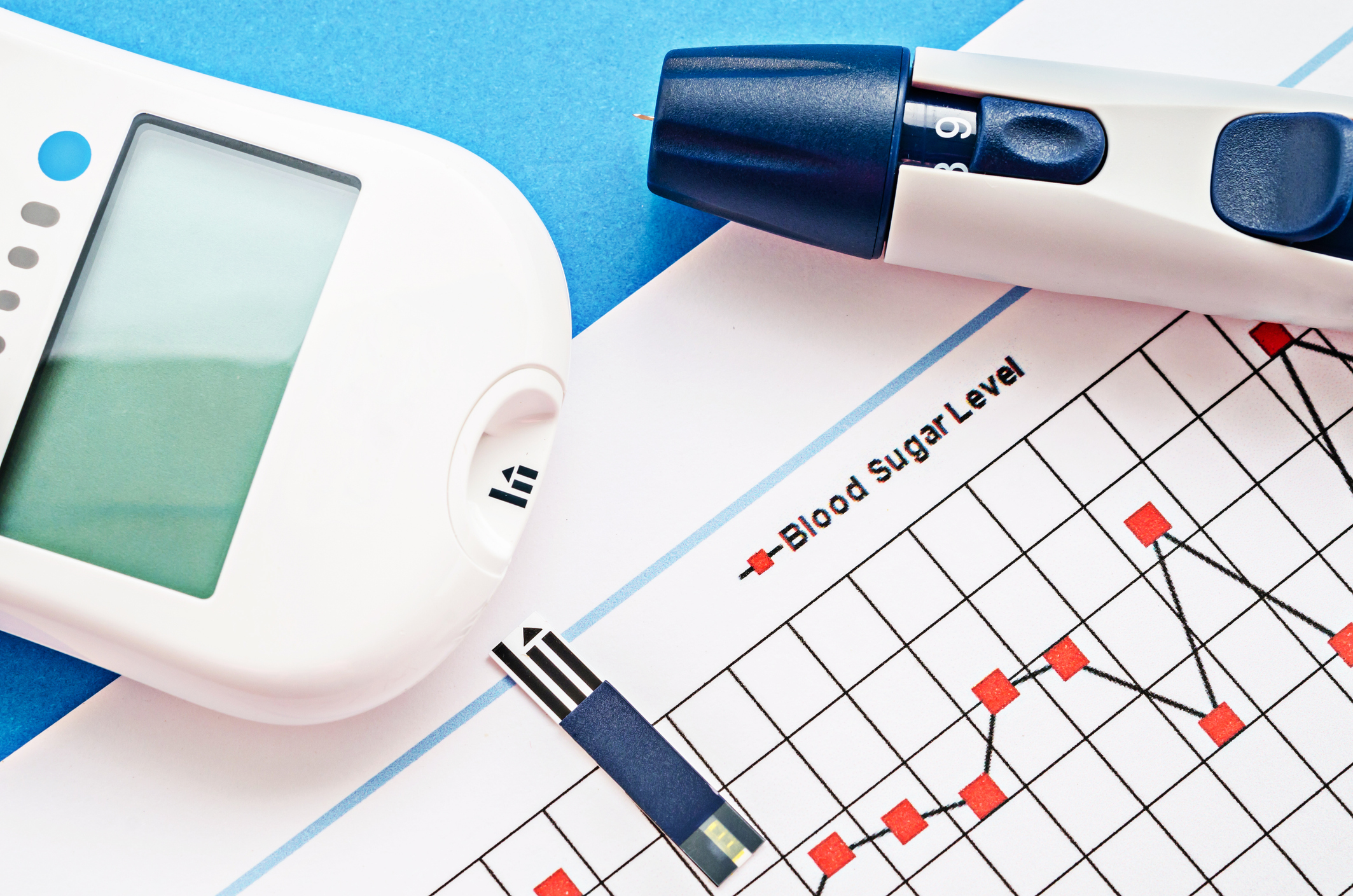5 Medtech Stocks to Seize Major Growth
The merging of healthcare and technology is changing how we care for our bodies. It's also creating investment opportunities, such as these five medical technology stocks.

Profit and prosper with the best of Kiplinger's advice on investing, taxes, retirement, personal finance and much more. Delivered daily. Enter your email in the box and click Sign Me Up.
You are now subscribed
Your newsletter sign-up was successful
Want to add more newsletters?

Delivered daily
Kiplinger Today
Profit and prosper with the best of Kiplinger's advice on investing, taxes, retirement, personal finance and much more delivered daily. Smart money moves start here.

Sent five days a week
Kiplinger A Step Ahead
Get practical help to make better financial decisions in your everyday life, from spending to savings on top deals.

Delivered daily
Kiplinger Closing Bell
Get today's biggest financial and investing headlines delivered to your inbox every day the U.S. stock market is open.

Sent twice a week
Kiplinger Adviser Intel
Financial pros across the country share best practices and fresh tactics to preserve and grow your wealth.

Delivered weekly
Kiplinger Tax Tips
Trim your federal and state tax bills with practical tax-planning and tax-cutting strategies.

Sent twice a week
Kiplinger Retirement Tips
Your twice-a-week guide to planning and enjoying a financially secure and richly rewarding retirement

Sent bimonthly.
Kiplinger Adviser Angle
Insights for advisers, wealth managers and other financial professionals.

Sent twice a week
Kiplinger Investing Weekly
Your twice-a-week roundup of promising stocks, funds, companies and industries you should consider, ones you should avoid, and why.

Sent weekly for six weeks
Kiplinger Invest for Retirement
Your step-by-step six-part series on how to invest for retirement, from devising a successful strategy to exactly which investments to choose.
It's no secret that technology is changing every facet of our lives. From how we conduct business to how we shop, tech is everywhere. And that wide reach of technology includes our bodies. Tech is revolutionizing the healthcare sector – and creating opportunities in medical technology stocks.
Dubbed "medtech," this blending of healthcare and technology has already had sweeping effects. Advanced genomic tools allow us to create targeted cancer medicines, new medical devices empower patients to control diabetes with better results; heck, we can even see a doctor virtually or use data to buy health insurance at lower prices. All in all, the blending of technology and healthcare is transforming how we treat and care for our bodies.
And it's been great for investors, as well.
Healthcare has been traditionally one of the more stable and recession-resistant sectors. As we know, technology stocks are often fast-moving. When you combine the two, you get medical technology stocks, which offer stability with a real side of growth. Typically, revenue growth is faster at medtech firms than a traditional drug manufacturer.
And returns have been wonderful, as well. While there's no official index for medtech stocks, there is the iShares U.S. Medical Devices ETF (IHI). This fund owns a host of medical device and medtech producers, and is up a staggering 671% since its inception in 2006 for a 14.4% annual average return. Not too shabby at all.
With that in mind, here are five medical technology stocks for investors looking to capitalize on the growing sector.
Data is as of Sept. 14. Analysts' average long-term growth rate expectations represents the estimated average rate of earnings growth for the next three to five years, and is courtesy of S&P Global Market Intelligence.

Veeva Systems
- Market value: $46.4 billion
- Analysts' average long-term (LT) earnings growth rate: 18.2%
Cloud computing and software-as-a-service (SaaS) applications have already revolutionized business, finance and entertainment. Veeva Systems (VEEV, $299.01) is doing the same for healthcare.
Founded by former Salesforce.com (CRM) executive Peter Gassner, VEEV has used the SaaS approach to produce various applications for the life sciences and biotech industries, drug producers and hospitals. These cloud solutions include everything from collecting trial data during drug development, customer management services and even ongoing risk management tools for drugs in production. Nearly a thousand clients use VEEV's software, including large-cap firms like Eli Lilly (LLY) and Moderna (MRNA).
One win for Veeva is that healthcare is a very regulated sector. The Food and Drug Administration (FDA) and other international regulatory groups require plenty of data and compliance to get drugs to market and keep them there. Veeva's products make these record-keeping and compliance requirements simple and easy.
This creates plenty of stickiness with its revenues. Just over 80% of its annual revenue for fiscal 2021 came from subscription services. Perhaps even better is that Veeva has been successful in transitioning its clients into other products. In fiscal 2021, VEEV saw a 33% year-over-year jump in revenues as it added new clients and moved older ones into extra products.
What is exciting for Veeva and its potential investors is that the company actually makes money. For the second quarter of fiscal 2022, net income clocked in at $108.9 million. This was a 16.3% year-over-year increase. Cash flows from operations were robust, as well.
As far as medical technology stocks go, this one is in a must-have niche for drug developers.

DexCom
- Market value: $52.5 billion
- Analysts' average LT earnings growth rate: 17.2%
There's a major epidemic that has swept across the world: diabetes. According to the latest numbers from the Centers for Disease Control and Prevention (CDC), more than 34.2 million people of all ages in the U.S. had diabetes in 2018. That's nearly 10.5% of the total population.
Globally, the International Diabetes Federation estimates that the number of adults with diabetes in 2019 was roughly 463 million. Managing that burden is a major endeavor and medical technology is helping on that front.
One win comes from continuous glucose monitoring (CGM). Here, a sensor is placed on a patient's body and is able to wirelessly send real-time glucose numbers to devices like smartphones and smartwatches. This eliminates the need for painful finger pricks and allows diabetes patients to quickly identify trends and make decisions on needed treatments.
There are a few medtech stocks in the CGM sector, but one of the fastest growing is DexCom (DXCM, $542.23).
DXCM created its first CGM product in 2006 and its latest iteration, the G6, was launched in 2018. The beauty of this device is that it can be paired with an insulin pump to help users more easily manage their diabetes.
Dexcom's strong presence in the CGM market is seen in its financial results. In the second quarter, the company saw a 32% jump in sales to $595.1 million versus a year ago. "Strong new customer additions continue to be the primary driver of revenue growth as awareness of real-time CGM increases," the company noted in its earnings press release.
There's plenty of growth potential, as well. CGM is still in its infancy here in the U.S. and abroad. And while originally designed as a product for Type-1 diabetes, new studies have suggested that CGM has profound effects on Type-2 diabetes care. This could lead to plenty of future sales for Dexcom.

Abiomed
- Market value: $16.0 billion
- Analysts' average LT earnings growth rate: 12.9%
The best medtech stocks use technology to improve processes or reduce the risk to patients. Abiomed (ABMD, $353.53) is a prime example of both.
Many patients needing heart surgery will use a percutaneous coronary intervention (PCI), or, as it was formerly called, angioplasty with stent. Heart surgery is very risky for even the healthiest of patients. But for those who have undergone some major cardiovascular event, surgery can be life-threatening. This is where ABMD comes in.
Abiomed's prime product is the Impella series of heart pumps. These devices help patients undergoing PCI or other heart-related surgeries while reducing risks. The Impella is a minimally invasive device and helps keep blood pressure and blood flow normal during surgery. It also takes the strain off of the heart. Impella pumps are removed after surgery.
Given that heart disease is the number one cause of death in the U.S., ABMD's products are very much in demand. Since 2005, Abiomed's sales have grown at a compound annual growth rate (CAGR) of 25% per year.
An added bonus: ABMD has been profitable since 2012. And with no debt on its balance sheet, the firm's cash balance has exploded over the years. At the end of fiscal 2021, Abiomed had $848 million in cash and investments on its balance sheet – up 30% on a year-over-year basis. That gives it a lot of firepower for research and development.
At 55x forward earnings, ABMD isn't cheap. But given the addressable market and its historic rate of revenue growth, that valuation may just be worth it for this medtech superstar.

Teladoc Health
- Market value: $21.3 billion
- Analysts' average LT earnings growth rate: N/A
Another plus for medical technology stocks is their ability to reduce costs and time for both consumers and enterprise customers. Take for instance Teladoc Health (TDOC, $133.72).
TDOC is the leading player in the growing field of telemedicine. Users can log in to Teladoc's cloud via a number of devices and speak with a doctor or physician's assistant in real-time, 24/7. Patients can get a diagnosis, requests for referrals or additional testing and they can even order prescriptions. Additionally, the company added programs that send remote monitoring devices, like blood pressure cuffs, to its users in order to get accurate data before Primary Care appointments.
Both patients and employers like the idea. Use of TDOC's services exploded during the pandemic when traditional doctor's offices were reducing the number of patients seen. Moreover, employers have continued to add Teladoc as part of their benefits packages. Since 2016, revenues have grown by a 70% CAGR, while the number of visits has grown 40% annually.
There's still room for additional growth. Teladoc recently launched myStrength Complete, a full-service mental health suite that allows users to access therapists and psychiatrists. New deals with Dexcom, Microsoft (MSFT) and health insurers are designed to add revenues and complimentary products to its mix.
The one caveat to TDOC is that it has yet to turn a profit, so the stock is very much a revenue play at this point. But given its leadership position, first-mover advantage and scope, profits could start materializing sooner rather than later.
And Wall Street pros are certainly bullish on the name, per S&P Global Market Intelligence. The consensus recommendation among the 29 analysts following the stock is Buy, while the average price target is $197.65, representing expected upside 47.8% over the next 12 months or so.

Illumina
- Market value: $70.2 billion
- Analysts' average LT earnings growth rate: 25.1%
One of the latest trends in drug development happens to be products that use gene sequencing. From custom cancer treatments and those drugs curing rare genetic diseases to diagnostics and testing, gene sequencing makes it happen. And much of that sequencing happens on machines produced by Illumina (ILMN, $448.85).
ILMN is one of the leaders in so-called next-generation sequencing. Skipping the science lecture, next-gen sequencing allows researchers to look at entire genomes or targeted regions of DNA or RNA quickly and at a lower cost than older methods. That means the science that used to take months to do could possibly be done in a day.
Both drug developers and university researchers continue to see the benefit in owning Illumina products, while hospitals, doctor's offices and clinics are now using sequencing for diagnostic testing. The next-generation sequencing market is expected to reach $24.2 billion by 2026, and ILMN is well-positioned to capitalize on that growth.
The firm uses the classic razor-blade model. The sequencers themselves aren't cheap to begin with, but where the Illumina makes its real money is in selling the blades, or, in this case the reagents, flow cells and microarrays. These items are needed to make the sequencer run and they get used up in the process.
In the second quarter, these sorts of consumables made up about 62.5% of Illuminia's total revenue – and sales for them were up 82% year-over-year. ILMN is also very profitable, with adjusted Q2 earnings per share tripling to $1.87 from the year prior. Plus, the company has plenty of free cash flow (FCF), which is the cash remaining after a company has paid its expenses, interest on debt, taxes and long-term investments to grow its business. In the second quarter, Illumina's FCF clocked in at $209 million.
There is significant growth potential for ILMN, too. New diagnostic testing kits, continued genetic drug research and its pending buyout of multi-cancer early detection firm Grail will help boost revenues and profits down the road.
Profit and prosper with the best of Kiplinger's advice on investing, taxes, retirement, personal finance and much more. Delivered daily. Enter your email in the box and click Sign Me Up.
-
 5 Vince Lombardi Quotes Retirees Should Live By
5 Vince Lombardi Quotes Retirees Should Live ByThe iconic football coach's philosophy can help retirees win at the game of life.
-
 The $200,000 Olympic 'Pension' is a Retirement Game-Changer for Team USA
The $200,000 Olympic 'Pension' is a Retirement Game-Changer for Team USAThe donation by financier Ross Stevens is meant to be a "retirement program" for Team USA Olympic and Paralympic athletes.
-
 10 Cheapest Places to Live in Colorado
10 Cheapest Places to Live in ColoradoProperty Tax Looking for a cozy cabin near the slopes? These Colorado counties combine reasonable house prices with the state's lowest property tax bills.
-
 DexCom, GE, SLB: Why Experts Rate These Stocks at Strong Buy
DexCom, GE, SLB: Why Experts Rate These Stocks at Strong BuyWall Street gives these three diverse names Strong Buy recommendations with high potential upside.
-
 Wellness Stocks to Invest in Now
Wellness Stocks to Invest in NowBreakthroughs that help us live longer, healthier lives can also create opportunities for investors.
-
 The 24 Cheapest Places To Retire in the US
The 24 Cheapest Places To Retire in the USWhen you're trying to balance a fixed income with an enjoyable retirement, the cost of living is a crucial factor to consider. Is your city the best?
-
 Stock Market Today: Stocks Are Mixed Ahead of the Fed
Stock Market Today: Stocks Are Mixed Ahead of the FedTwo of the three main equity indexes closed higher on the first day of the final Fed Week of 2024.
-
 Stock Market Today: Dow Adds 654 Points as 3M Stock Explodes Higher
Stock Market Today: Dow Adds 654 Points as 3M Stock Explodes HigherIt was a risk-on day for stocks thanks to an upbeat inflation reading and impressive earnings from 3M and Deckers.
-
 Dexcom Stock Sinks on Sales Miss, Guidance Cut: What to Know
Dexcom Stock Sinks on Sales Miss, Guidance Cut: What to KnowDexcom stock is crashing Friday after the glucose monitoring company reported dismal Q2 revenue and slashed its full-year sales guidance. Here's what you need to know.
-
 Why You Should Invest In Healthcare Stocks
Why You Should Invest In Healthcare StocksIt stands to reason that investing in healthcare is less volatile than investing in other sectors. After all, people get sick in both good times and bad.
-
 5 Stocks to Sell or Avoid Now
5 Stocks to Sell or Avoid Nowstocks to sell In a difficult market like this, weak positions can get even weaker. Wall Street analysts believe these five stocks should be near the front of your sell list.
